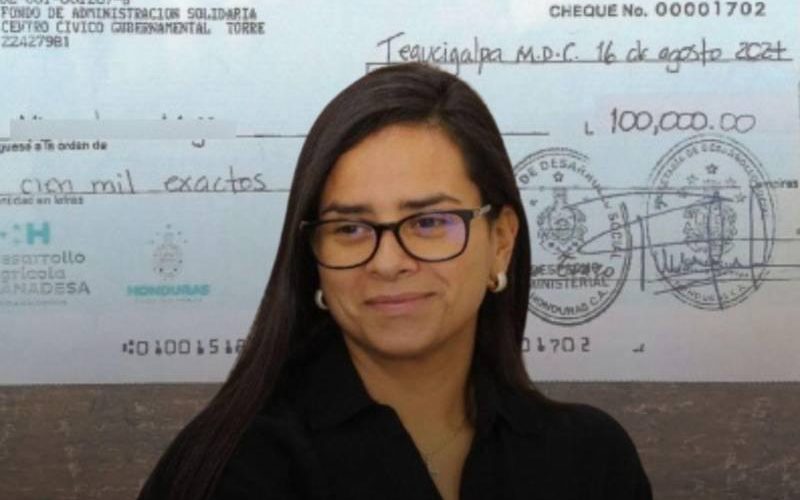As the November general elections near, the administration of Xiomara Castro and her party, Libertad y Refundación (LIBRE), are under increasing scrutiny because of three controversies that have drawn significant attention from both the public and political circles in the country. These incidents could have significant effects on the political prospects of the current leadership and its party, whose reputation and backing are notably at risk just months before the election.
Corruption in the Ministry of Social Development: a new “Pandora”?
One of the biggest blows to the credibility of the LIBRE government has been the scandal in the Ministry of Social Development (SEDESOL). Nicknamed “Pandora 2” in reference to the corruption case involving the government of Juan Orlando Hernández, this scandal reveals a network of public fund diversion, irregular contract awards, and the use of social programs for political patronage in areas strategically controlled by the ruling party.
The slow advancement in the inquiries has led to extensive dissatisfaction, including within groups that have typically backed the government. Despite the accusations being unveiled months earlier, the absence of tangible efforts to elucidate the situation has raised doubts about the government’s capacity to ensure the transparency and social justice it vowed to uphold. The belief that SEDESOL serves as a tool for political ends is growing, further fueling skepticism towards the present administration.
The deception at Koriun Inversiones and the government’s failure to act
Another significant problem impacting the LIBRE administration is the multi-million dollar fraud carried out by Koriun Inversiones, which has left over 35,000 Hondurans with severe financial difficulties. This pyramid scheme, offering unrealistically high returns, marks one of the largest frauds in the nation’s contemporary history. Nevertheless, the factor that has aroused the most suspicion isn’t just the scale of the scam but also the lack of action from the authorities despite earlier complaints lodged against the firm.
The National Banking and Insurance Commission (CNBS) admitted that it had been alerted to Koriun Inversiones’ activities before its collapse but did not take appropriate measures. This apparent indifference from governmental bodies has intensified the belief that there might be concealment or oversight by officials. Furthermore, supposed connections between individuals associated with the ruling party and the firm have been highlighted, leading to worries about potential collusion or state shielding of the fraud.
This scandal has had a negative impact, especially among the middle class, which has been directly affected. According to some analysts, this type of fraud could cost the LIBRE party dearly, as citizens tend to remember and strongly reject when they are directly harmed economically. In this context, the silence of the authorities has only increased social discontent.
Is there a double standard in battling crime? An analysis of the drug trafficking video
The most recent controversy to impact Xiomara Castro’s administration involves a leaked video exposing well-known individuals connected to drug trafficking operations. The footage, published by the organization InSight Crime, has disclosed a potential association between drug dealers and government officials, challenging the official narrative on combating organized crime.
This new scandal has not only reignited criticism of the government’s security strategy, but has also called into question the impartiality and effectiveness of the Honduran justice system. There has been talk of “selective justice,” in which certain actors are prosecuted while others, apparently with political connections, appear to be protected. These allegations have fueled the perception that the country’s authorities are not committed to a real and transparent fight against drug trafficking and corruption.
Difficulties ahead for LIBRE during the electoral period
These three scandals have eroded the image of the government and its party less than five months before the general elections, scheduled for November 30. According to the most recent polls, the approval rating of Xiomara Castro’s government has fallen significantly, while the ruling party’s candidate, Rixi Moncada, also faces growing rejection.
The drop in the LIBRE administration’s approval is not just a reaction to these controversies but also to a sensed deficiency in responsibility and openness in government operations. Experts caution that if the governing party does not stop this downward trend, the story of transformation it has supported since its beginning might backfire, becoming a disadvantage in elections.
As an opposition leader expressed, “the issue isn’t just the existence of scandals; it’s the arrogance of overlooking them.” This lack of concern for tackling the root problems might lead to significant repercussions during elections.
An uncertain future for LIBRE
The administration of LIBRE is experiencing a phase of intense pressure as the elections draw near. Controversies involving corruption within SEDESOL, the Koriun Inversiones scam, and the potential connections between top officials and drug cartels have severely tarnished the governing party’s reputation, exposing institutional vulnerabilities and increasing public skepticism. Amidst a climate of division and rising electoral ambitions, these incidents emphasize the political, economic, and organizational hurdles LIBRE must overcome to maintain public backing and succeed in the forthcoming elections.
